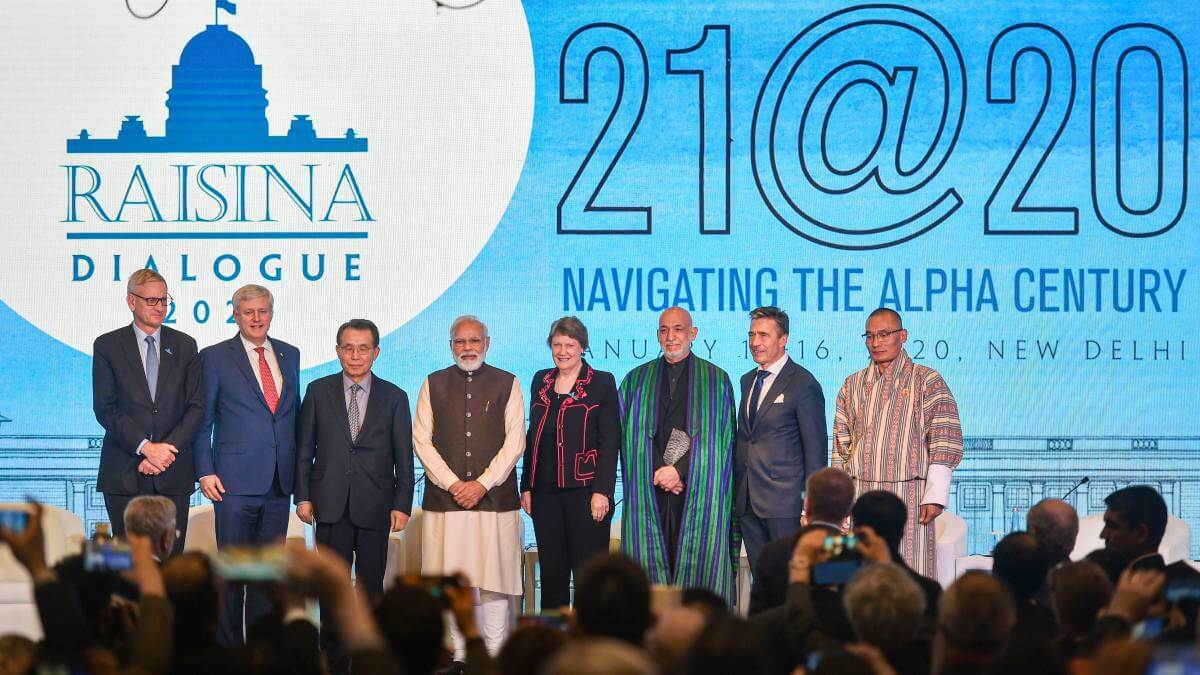Maldives
Maldivian Foreign Affairs Minister Abdulla Shahid is set to conclude his visit to India. During his meeting with Indian counterpart S Jaishankar, the two leaders discussed several bilateral, regional, and global issues of mutual interest. Shahid will also participate in the Raisina Dialogue for the session on “Financing for Sun” and “Global Public Health after the Pandemic.”
European Union
On April 12, the Ninth India-European Union (EU) Human Rights Dialogue was conducted in New Delhi. The discussions saw the participation of Sandeep Chakravorty, India’s Joint Secretary for Europe (West), and Ugo Astuto, the European Union’s Ambassador to India.
According to a joint release following the meeting, they discussed the need to further their commitment towards human rights by focussing on social, economic, and cultural aspects of the relationship. Moreover, they held extensive discussions on “civil and political rights, freedom of religion or belief, women empowerment, children’s rights, rights of minorities and vulnerable groups”. In this regard, they emphasised the need to further principles of “universality, indivisibility, interdependence and interrelatedness of all human rights” along with the “values of democracy, freedom, rule of law and respect for human rights”.
France
French Minister for Europe and Foreign Affairs Jean-Yves Le Drian visited India from April 13 to April 15. During the visit, he met with India’s External Affairs Minister S. Jaishankar to discuss bilateral cooperation in a post-pandemic world. According to a statement published by the Indian Ministry of External Affairs, the leaders discussed the need to collaborate on several issues, including “trade and investments, defence and security, health, education, research and innovation, energy and climate change.”
In addition, the two ministers also spoke about several regional and global issues of mutual interest. This included detailed discussions on multilateralism, the need to further peace and stability in the Indo-Pacific, the challenges faced in the space and maritime domains, and the need to enhance cooperation to combat climate change. Moreover, they also spoke of strengthening forums such as the India-France-Australia Trilateral mechanism.
Apart from the abovementioned issues, the two sides held discussions on the need to further cultural exchanges between India and France. According to a release by the French Foreign Ministry, the visit provided the French minister with ‘an opportunity to promote individual exchanges with the induction of around 10 “study in France ambassadors’.” This, the statement said, would further economic ties and promote innovation in a variety of sectors.
During his visit, Le Drian also met with Prakash Javadekar, the Indian Minister of Environment, Forest, and Climate Change.
Raisina Dialogue
From April 13-16, India hosted the Sixth Edition of the Raisina Dialogue, which was jointly organised by the Ministry of External Affairs and the Observer Research Foundation. The forum is an India-led platform that aims to hold discussions on geopolitics and geoeconomics.
This year, among others, the Rwandan President Paul Kagme, Danish PM Mette Frederiksen, Australian PM Scott Morrison, and European Council President Charles Michel participated in the dialogue. Also present were foreign ministers from France, Singapore, Japan, Italy, Maldives, and Qatar.
It was held under the theme of “#ViralWorld: Outbreaks, Outliers and Out of Control.” The discussions are being held on five thematic pillars: WHOse Multilateralism? Reconstructing the UN and Beyond; Securing and Diversifying Supply Chains; Global’ Public Bads’: Holding Actors and Nations to Account; Infodemic: Navigating a ‘No-Truth’ World in the Age of Big Brother; and The Green Stimulus: Investing in Gender, Growth, and Development.
On the opening day, India’s External Affairs Minister S. Jaishankar addressed the meeting and discussed India’s commitment to providing “equitable access” to COVID-19 vaccines, and its intent to continue to use its productive capacity to bring an end to the pandemic.
NATO Secretary-General Jens Stoltenberg raised concerns about China’s aggression in the Indo-Pacific and its obstruction of the freedom of navigation in the South China Sea. In this regard, he celebrated India as a “pivotal player” in the region. This statement was protested by the Chinese embassy in India, who said, “making baseless and irresponsible remarks is not acceptable. We are firmly opposed to interference in China’s internal affairs by any country or anyone under any pretext.”
China
On Saturday, the 11th round of the India-China Corps Commander Level Meeting was held along the Chushul-Moldo border. According to a release by the Indian Ministry of External Affairs, the two sides discussed the need to expedite disengagement along the Line of Actual Control in Ladakh and to abide by the existing agreements and protocols mutually decided between India and China. This was critical to “ensure full restoration of peace and tranquillity and enable progress in bilateral relations”. To resolve the pending issues, the leaders spoke of the need to follow the mutual consensus reached by the countries’ leaders and work towards avoiding any further escalations in border areas.
Indian Diplomacy: Weekly Round-Up (10 - 16 April, 2021)
This week, Indian authorities convened several meetings with officials from China, France, and the European Union, amongst others.
April 16, 2021

SOURCE: PTI
